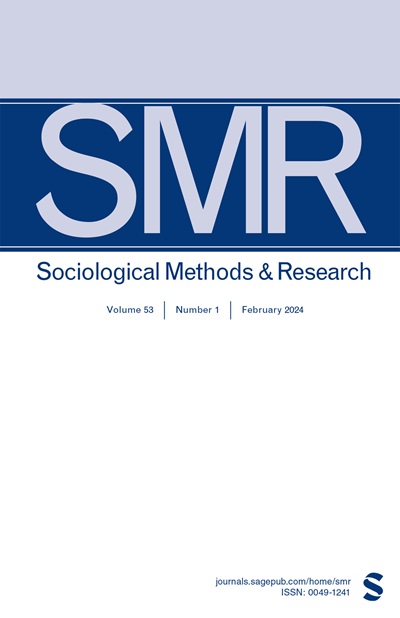The Mixed Subjects Design: Treating Large Language Models as Potentially Informative Observations
IF 6.5
2区 社会学
Q1 SOCIAL SCIENCES, MATHEMATICAL METHODS
引用次数: 0
Abstract
Large language models (LLMs) provide cost-effective but possibly inaccurate predictions of human behavior. Despite growing evidence that predicted and observed behavior are often not混合主题设计:将大型语言模型视为潜在的信息观察
大型语言模型(llm)提供了具有成本效益但可能不准确的人类行为预测。尽管越来越多的证据表明,预测和观察到的行为往往不能互换,但使用llm获得因果效应和其他参数的有效估计的指导有限。我们认为法学硕士预测应该被视为潜在的信息观察,而人类受试者在混合受试者设计中充当黄金标准。这种模式保持了有效性,并以较低的成本提供了比完全依赖人类受试者的实验更精确的估计。我们展示并扩展了预测驱动推理(PPI),这是一种结合预测和观察的方法。我们将PPI相关性定义为互换性的度量,并推导出PPI的有效样本量。我们还引入了功率分析,以在信息丰富但成本高昂的人类受试者和信息较少但成本低廉的人类行为预测之间进行最佳选择。混合主题设计可以提高科学生产力,减少获取昂贵证据方面的不平等。
本文章由计算机程序翻译,如有差异,请以英文原文为准。
求助全文
约1分钟内获得全文
求助全文
来源期刊

Sociological Methods & Research
Multiple-
CiteScore
16.30
自引率
3.20%
发文量
40
期刊介绍:
Sociological Methods & Research is a quarterly journal devoted to sociology as a cumulative empirical science. The objectives of SMR are multiple, but emphasis is placed on articles that advance the understanding of the field through systematic presentations that clarify methodological problems and assist in ordering the known facts in an area. Review articles will be published, particularly those that emphasize a critical analysis of the status of the arts, but original presentations that are broadly based and provide new research will also be published. Intrinsically, SMR is viewed as substantive journal but one that is highly focused on the assessment of the scientific status of sociology. The scope is broad and flexible, and authors are invited to correspond with the editors about the appropriateness of their articles.
 求助内容:
求助内容: 应助结果提醒方式:
应助结果提醒方式:


